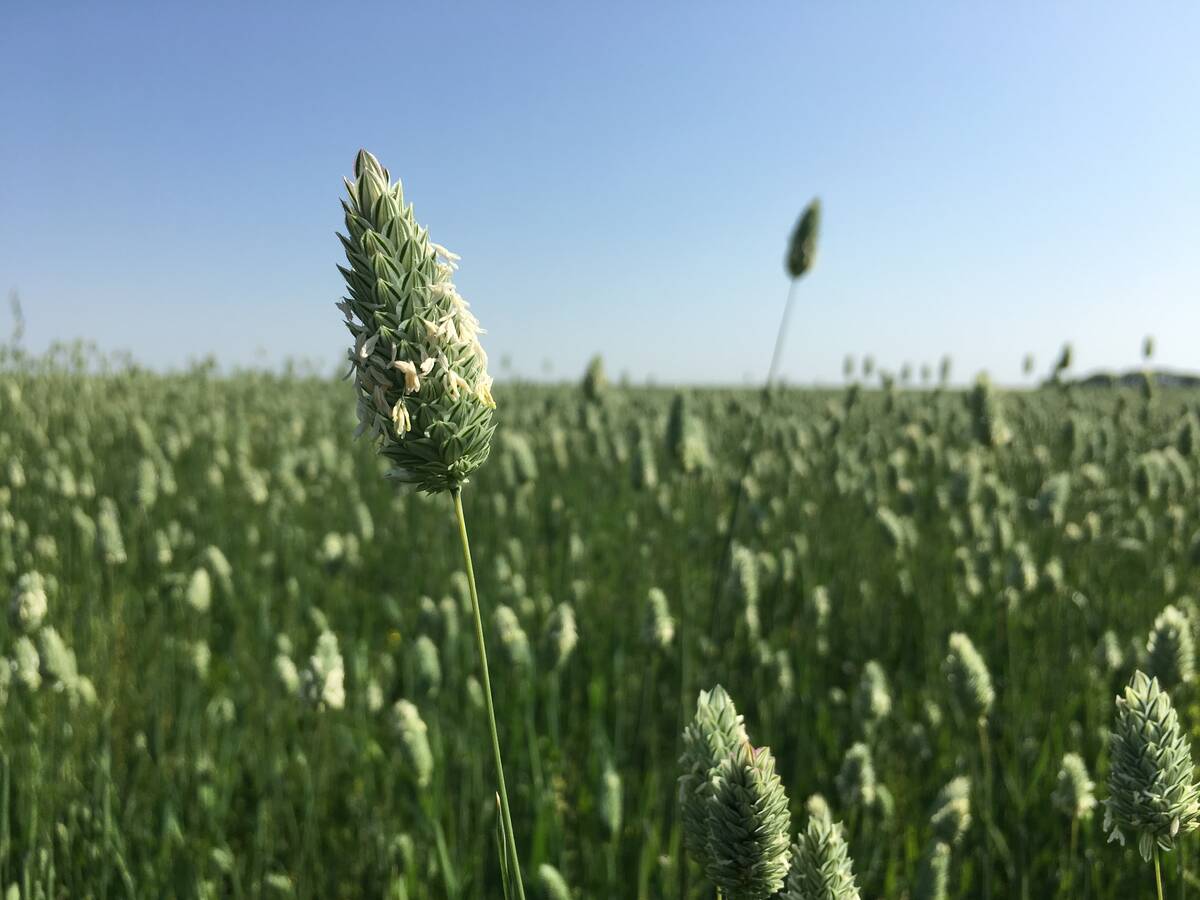A British Columbia dairy producer wants to combine prairie fruit with gouda to create a new taste.
Arie Gort operates Gort’s Gouda Cheese with his wife Anneke and daughter Yolanda Gort-Tiller near Salmon Arm, B.C.
Already experimenting with dried blueberries and cranberries in their gouda cheese, the Gorts’s thoughts next turned to prairie grown saskatoons.
“I think they will like the sweetness with the savory,” Gort-Tiller said, citing the complement of fruit and cheese already seen at many dinner tables.
Research is now underway in Saskatchewan to dry saskatoons for use in products ranging from health beverages and tourism products to bagels and snack bars.
Read Also

No special crop fireworks expected
farmers should not expect fireworks in the special crops market due to ample supplies.
Consumers have yet to taste the Gorts’s newest cheeses because they are still in the aging process, but Gort-Tiller said cranberry cheese is already on the market elsewhere.
She said consumers’ palates are becoming more sophisticated, and people are seeking new tastes.
Gort-Tiller recalled her dairy’s early days in B.C. in the mid-1980s when cheddar was king on most grocery shelves. Today a wide selection of cheeses is offered.
Gort-Tiller’s sister started the family’s cheese business by returning to Holland to learn the art of cheese making. A great grandfather had also been a cheese maker in Holland, she added.
Today the Gorts focus on their most popular cheeses, but Arie likes to experiment with new ingredients.
“We’re always trying to better ourselves in flavour and taste,” Gort-Tiller said.
The Gorts produce more than a dozen types of cheese on their farm from their 30-head herd of certified organic Shorthorn and Brown Swiss cows. The family’s cheese varieties include a host of spices from fenugreek to cumin.
They also produce quark, feta and parmesan cheeses and yogurt for local and on-line markets in Canada from their federally inspected cheese plant, conduct tours of the plant and barn and operate an on-farm store.
The family immigrated to the valley more than two decades ago after farming in Zimbabwe and their native Holland.
They sold their original dairy herd, which included Holsteins and Jerseys, in the late 1990s because of a lack of capacity in their milking parlour.
They returned to milking cows by establishing an organic dairy in response to a growing organic sector.
Shorthorns and Brown Swiss were chosen because they have few calving problems, produce high butterfat milk and graze well.
Gort-Tiller manages the cheese plant, on-farm retail store and staff while Anneke serves as bookkeeper and Arie handles general maintenance, cheese making and sales.
This year, the farm will expand its store space and add a deli and café.
Their cheese production has grown steadily, with their milk production more than doubling from the 500 litres they produced each day when the farm began. They also buy milk.
While 60 percent of sales used to be to wholesale markets, retail sales now make up 60 percent of their business. Marketing is done by word of mouth and through a website at www.gortsgoudacheese.bc.ca that helps them sell cheese across Canada.
The business, which added the retail store six years ago, employs 13 workers.














